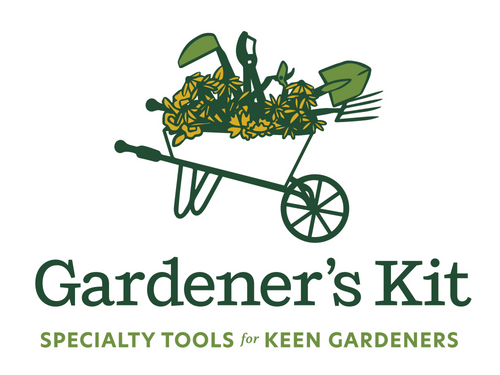Forks are Under-Appreciated
Using a border fork in the garden seems to be a lost skill in this part of the world, and it took several working trips to England for me to begin to appreciate their utility.
Using the right tool for the job can make all the difference for ease and efficiency in the performance of your gardening jobs, and a fork is definitely a better tool than a spade or shovel or trowel in many situations.
Here are the many ways we use forks:
Digging & Transplanting
Generally, forks are used to loosen, lift and turn soil, similar to a spade or trowel, with the difference being that the spaces between the tines allow a fork to be pushed into the ground more easily, break up clods of soil, and get past/remove stones and rocks.
A fork is also useful in the veggie garden for lifting potatoes and other root crops, and for turning and moving compost and green waste.
An important one in my business - we use it for transplanting. A fork doesn't cut through all of a plant's roots the way a spade does, thus does less damage to the plant and ensures better transplanting results.

Weeding
A fork is super handy for weeding (a border fork for large areas, a hand fork for small) especially for tap-rooted or tuberous plants, because you don't want to cut or break those roots in order to prevent re-growth from any pieces left in the soil (think goutweed, bindweed, japanese anemone).
Its also incredibly helpful with mat-forming weeds or in heavily compacted areas - we go over infested areas with a fork first, plunging it in and wiggling it back and forth to loosen the soil (and the crowns of the weeds) throughout the area before we start pulling them out. Makes the weeds so much easier to remove and saves hours of painstaking hand work.

Dividing Plants
Lastly, even though I was disparaging about it until I'd actually tried it, using two forks back-to-back to lever apart dense clumps of roots is a speedy and less damaging way to divide plants (try the short-handled or hand forks in the Sneeboer range for smaller plants and propagation).
It is important to choose a fork that is strongly made because the tines of poorly-made forks can bend with use, especially if you have heavy clay or compacted soils. Use a fork that is made from one piece of steel and not welded together from multiple pieces - Sneeboer!

